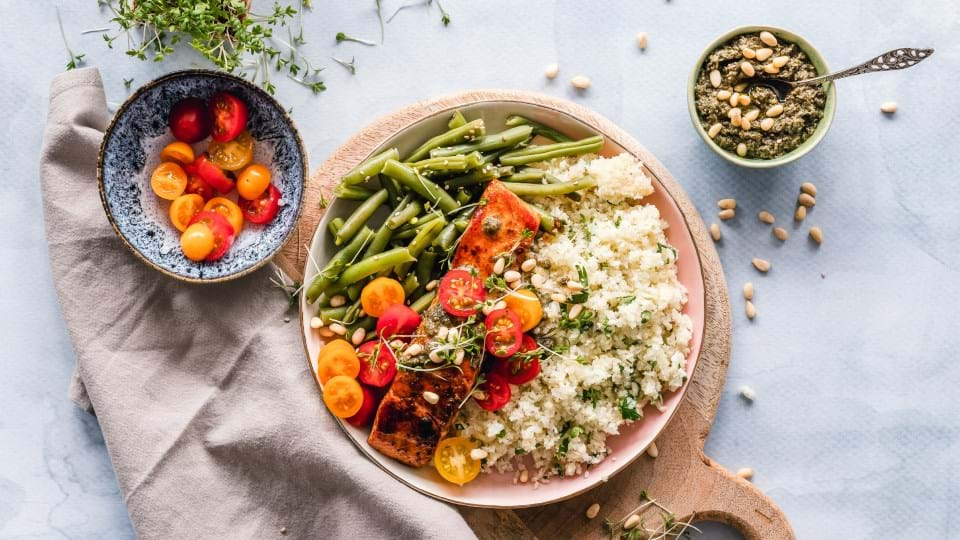Expert foodies have forecast the food fads that will shake up your shopping lists in 2023.

Every year for the past eight years, a council consisting of over 50 people from the Whole Foods supermarket chain, local foragers, buyers and culinary experts have come together to predict the top nutrition trends for the year ahead. Their trend forecast is based on decades of industry expertise, analysis of consumer preferences and in-depth workshopping with emerging and existing brands. This year we’ve combined these insights with predictions from the International Food Information Council to identify the most interesting ways our diets could change in 2023.
LIQUID WELLNESS
In recent years, more and more people have been choosing foods for their wellness-inducing and stress-reducing qualities. Last year, 33 percent of those who changed their diet started selecting foods and beverages supposed to reduce stress. As this trend continues, wellness drinks are set to thrive. Yerba mate is a South American tea that is gaining popularity, as is yaupon tea, which comes from a holly bush that is North America’s only known native caffeinated plant. It’s not just teas, these natural finds are being used in wellness cocktails too. Whether it's at bars or restaurants, or as a post-workout treat, non-alcoholic cocktails increasingly feature functional health-boosting benefits. Could these healthy cocktails soon edge out the traditional margarita? Perhaps. A quarter of those who changed their diet last year started drinking less alcohol.
A PEAK IN PROBIOTICS POPULARITY
On the topic of drinks, according to the 2022 Consumer Insights on Gut Health and Probiotics Survey, one in four Americans regularly seek out probiotics in wellness drinks. This stems from gut health becoming the third most commonly sought-after health benefit. And, while yogurt, kimchi, sauerkraut and kefir will continue to be gut health staples, experts also predict probiotics and prebiotics will start being added to non-traditional foods, like chocolate, ice cream, juices and sauces.
CUTTING FOOD WASTE WITH PULP POWER
The wealth of plant-based options is growing – and moving beyond meat and dairy alternatives. There are now innovative plant-based pasta, rice and snack options, many of which are sustainably created by using the ‘waste’ components from other plant-based products. For example, pulp from non-dairy milk alternatives. With a Morning Consult poll indicating one in three consumers now use a non-dairy milk alternative at least once a week, there is a great deal of nut and oat pulp going to waste. By making use of this pulp for flour and baking mixes, we’re taking a big step forward to reduce food waste and support sustainable food production.
MORE WAYS TO JOIN THE KELP CLUB
For many, eating seaweed is nothing new, it’s been considered a nutritional wonder for centuries. But now, with increasing awareness of the environmental benefits that come from sustainably-farmed aquaculture, we’re anticipating even more kelp and algae-based foods to hit the scene. Kelp flakes are just the beginning; the nutritious and versatile qualities of kelp are being put to good use in noodles, chips and even fish-free ‘fish’ sauce. Learn more about the planet-healing potential of seaweed.
COMFORT CLASSICS FROM OUR CHILDHOOD
A recent Mintel Global Consumer survey found that 73 percent of U.S. consumers enjoy things that remind them of their past, so it’s no surprise that nostalgic culinary treats are set to make a comeback. Think mac and cheese, old-school cereals and retro snacks. The only difference is these old-fashioned favorites are being reinvented with a focus on greater nutritional value, healthier ingredients and variations to suit special diets.
SWEET DATES
As we explore new ways to limit refined sugar consumption, the popularity of dates continues to peak (spurred on by the date-based Snickers-like recipes shared on TikTok). Thanks to their classic caramel flavor, many are jumping on the date buzz, favoring them as a low glycemic and allergen-free sweetener. It's not just healthy bakers who are using dates just a sugar alternative – dates are becoming a staple ingredient in many pastes, syrups and ketchups, as well as showing up in pancakes and overnight oats.
CLIMATE-CONSCIOUS SHOPPING AND 'GLOCALIZATION'
Awareness around the importance of sustainability and climate-conscious shopping will continue to increase this year. And a growing proportion of brands and products are promoting their initiatives to support a healthier planet. The supply chain issues sparked by the pandemic and war have made us more aware of the origins of our food and the complexity of supply chains. As a result, the concept of ‘glocalization’ has emerged. This is when large global producers take action to adapt to unique local needs and conditions. It’s likely this will affect our purchasing decisions, and those products tailored to local markets will become our preferred choice.
